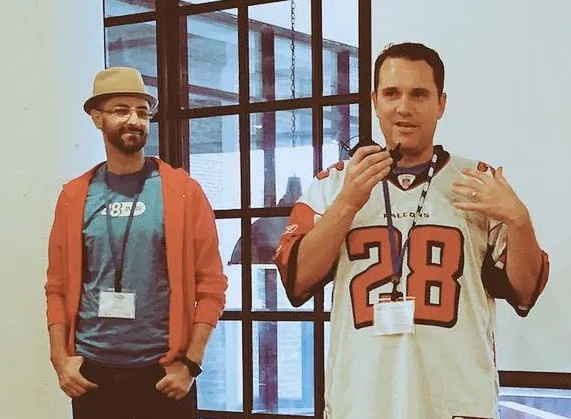This Google+ search controversy just keeps getting worse
More now on the Google+ search controversy. You know, the one where Google is giving their social network higher billing than others (Facebook, Twitter, etc.) in their search results. Yes, its a big problem.
Here we have a former Googler pointing out just how much Google has changed to even consider a move like this (link):
When the former Googler worked at Google (through a couple of years ago), doing something like this would have been “unthinkable,” the former Googler says. Realizing that Google is now willing to do it, the former Googler says, was a “sad day.”
And then we have the head honcho basically telling anyone that isn’t on board with this new direction can take a hike (link):
“This is the path we’re headed down – a single unified, ‘beautiful’ product across everything,” Page said, according to PandoDaily. “If you don’t get that, then you should probably work somewhere else.
I’d say that’s a pretty firm line drawn in the sand.
I hope you know what you’re doing, Mr. Page.



That was a very Jobsian thing to say for Page but how is the new direction any different from the Bing/Facebook initiative?
At the an AiMA meetup last summer, Michael Ching, then the Principal Program Manager/Software Development Engineer at Microsoft Bing Social, proselytized exactly the same strategy that Microsoft adopted. Unfortunately, the Google rep couldn’t say much because at the time, G+ was still under wraps.
I know that likes and +’s can be gamed to a certain degree, but isn’t the whole point of a “social”– to add relevancy to the results of what you’re seeking? Do you disagree with this, Jeff?
p.s. I just read your “Yes, its a big problem” post and I see your point on pre-ranking and I would hope that Google knows better than to just give priority to blank Google+ brand pages vs. active Facebook fanpages but I don’t think that’s what’s happening here.
p.p.s. Certainly this new direction of “unity” will be a + (pun intended) to the Google ecosystem which at best is a band-aid solution, so I don’t think there’s anything wrong here. While this is a 180 from the “don’t be evil” mantra, there’s nothing wrong with the evolution of culture within a company, right?
p.p.p.s My wish-list: Google to reduce the number of Android-flavored phones out there (nagganahappen); phones like HTC Sensation are actually allergic to the Google ecosystem.
–my two cents
I’m sorry…I couldn’t resist because Google keeps pinging me with policy updates and the one thing that is amusing and encapsulates how even Google graphic designers “don’t get” Page’s new direction is the attached picture and the following copy:
==============================================================
Easy
to work across Google
Our new policy reflects a single product
experience that does what you need, when you want it to. Whether you’re reading
an email that reminds you to schedule a family get-together or finding a
favorite video that you want to share, we want to ensure you can move across
Gmail, Calendar, Search, YouTube, or whatever your life calls for with ease.
==============================================================
C’mon Google! A “lock” in the middle of icons with dashed lines interconnected them? Looks like a security product to me.
The second icon is no better. A lock with “Share” next to it with copy:
==============================================================
Easy
to share and collaborate
When you post or create a document online, you
often want others to see and contribute. By remembering the contact information
of the people you want to share with, we make it easy for you to share in any
Google product or service with minimal clicks and errors.
==============================================================
The problem though is that today, they ARE giving preferential rankings to their social network (Google+) over say, Facebook. I absolutely think social should influence your search results, I’ve been advocating that for a long time, but it should still be based on the most relevant social data. If you search for me, you shouldn’t get Google+ results over Twitter, because I rarely use Goolge+ and use Twitter daily.
I was sure they would fix this but Page’s recent comments don’t seem to reflect that they will.
I personally don’t like this new path Google is taking. I find it a little unethical, but so far, it hasn’t helped me either. For instance, I looked up amy ray in google recently. The first site that popped up was Amy Ray’s website, but the 2nd result was my friend Amy’s g+ where she had mentioned Ray LaMontagne. How is that relevant?
Thanks for the response, Jeff. Attached are images of “jeff hilimire” search when 1) logged into google ecosystem 2) logged out.
When logged out my “general results” are giving the following order 1) jh.com 2) your Dec. 7 iphone piece 3) twitter/jh
[I’m no SEO expert but jh.com should be first because it’s your hub and the origin of your content, I would suspect your Dec. 7th piece got a lot of traction so it’s 2nd , and 3rd is your twitter account where you’re active]
When logged in “my personal” results (and it’s noted so–indicating the results are based on my activity in the google ecosystem) I am getting what you’re describing and it makes sense in my mind: You’re in my marketing Google Circle, therefor if I’m logged in, Google uses all the data it collects on Vlad Gorenshteyn and serves me what it thinks is most relevant giving preference to activities in its ecosystem.
I guess I just don’t see what’s wrong with this scenario since Google is part of a free-market enterprise; I personally don’t see Google as “broken” (when it comes to search) since they’re giving you both options of performing a search logged in and logged out.
Unless somebody points out something I’m missing here, I’m inclined to agree with Page’s direction.
Strangely enough, both searches (from the same IP) on my iPad via Safari give me identical results that are like my “logged out” results above from my PC.
–my two cents